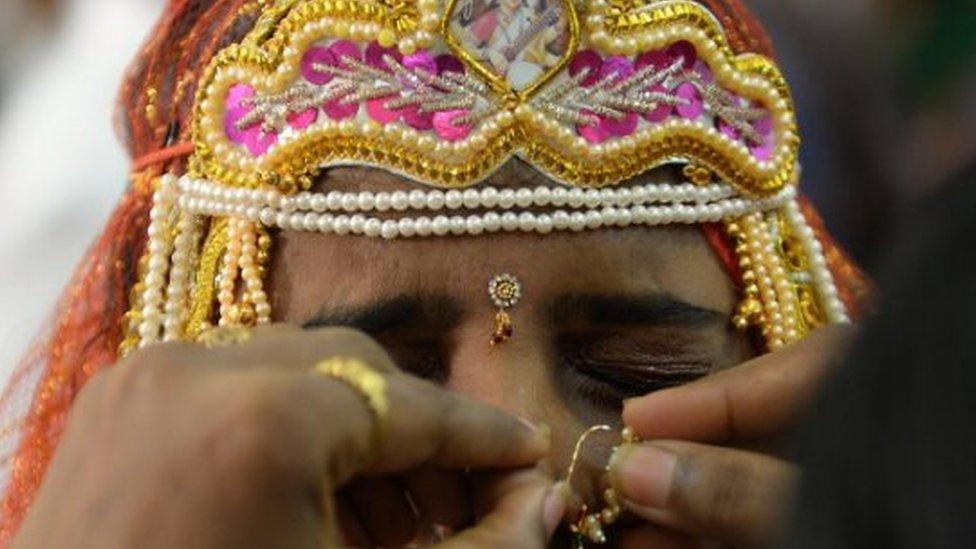India textbook lists 'ugliness' as cause for dowry
- Published

Paying and accepting dowry is a centuries-old South Asian tradition
A textbook in the western Indian state of Maharashtra has caused outrage after it listed "ugliness" as a reason for the increased demand for dowry.
The textbook said: "If a girl is ugly and handicapped then it becomes difficult for her to get married. To marry such girls [the] bridegroom and his family demand more dowry."
A minister that the offending passage would be removed.
Pictures of the text were widely circulated on social media.
Many pointed out that such texts did little to remove existing prejudices in Indian society.
Paying and accepting dowry is a centuries-old South Asian tradition where the bride's parents gift cash, clothes and jewellery to the groom's family.
Why are India's housewives killing themselves?
Five bizarre 'lessons' in Indian textbooks
The practice has been illegal in India since 1961, but it continues to thrive and campaigners say it leaves women vulnerable to domestic violence and even death.
Disputes can arise over how much money should be paid and over what timescale. In some cases when grooms and their families do not receive their desired amount, brides can be subject to terrible abuse.
In 2015, the Women and Child Development Ministry told parliament that more than 8,000 dowry deaths had been reported for each of the previous three years.
This is not the first time Indian text books have been in the spotlight for the wrong reasons.
A teacher in the central Indian state of Chhatisgarh last year complained about a textbook for 15-year-olds in the state, which said that unemployment levels had risen post-independence because women had begun working in various sectors.
And in 2006, it was discovered that a textbook for 14-year-olds in the northern Indian state of Rajasthan compared housewives to donkeys.